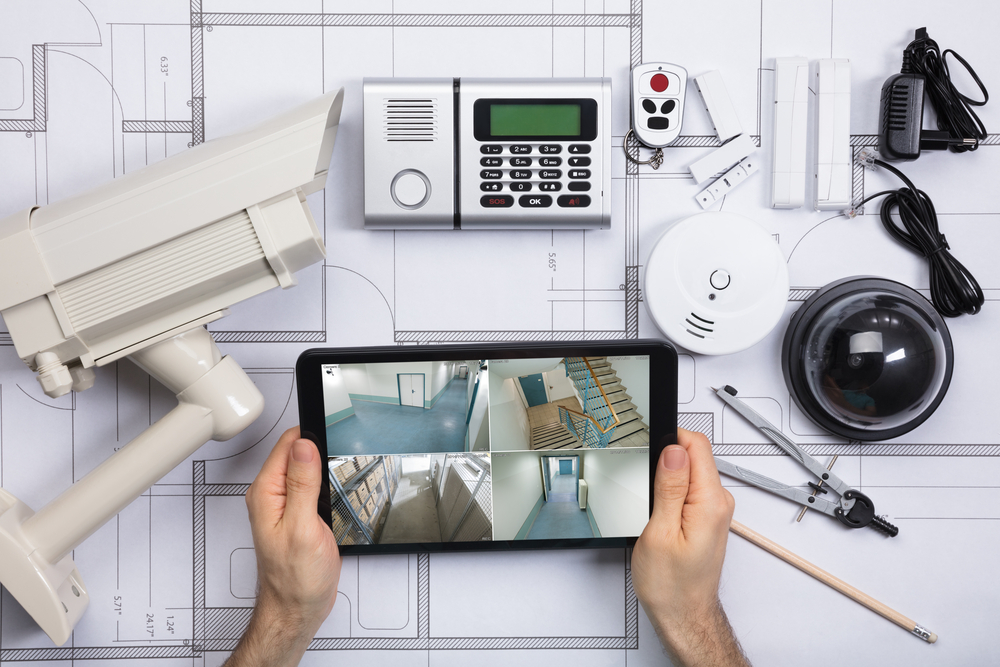As new and innovative systems become part of the Internet of Things (IoT), you get closer to a future where you own truly smart home. Things like Wi-Fi-based hydraulic locks and voice-activated vacuum cleaners were dreams a couple of decades ago. Today, you can not only get them from your nearest Home Depot outlet but also get a good package deal.
Most modern households have some security system for their residential property. However, as the systems become more advanced, so do the burglars or other criminals who mean to do you harm.
Any system can be exploited with the correct tools and a determined mindset. Still, you can take a few precautionary measures to minimize the chances of that happening. Throughout this guide, you’ll come across essential cybersecurity facts every homeowner should know. After all, feeling safe in your home is the biggest priority!

Most burglars today use a penetration tester to watch out for open Wi-Fi connections. Those can be made into portable devices with over 100 feet of range, giving them plenty of time and space to examine any vulnerabilities.
Therefore, you should lock your digital devices as often as possible. It’s not like you need to operate the RGB lighting in your gaming room 24 hours a day. Most devices like coffee makers and voice assistants integrate with a Wi-Fi network seamlessly. Thus, you never waste a lot of time connecting with a secure password.
Every piece of your home system's data flows through your Wi-Fi router. A hacker doesn't even need to break through the digital security if it is in an unsecured location. They can simply insert a ghost USB drive that can infect every connected device with a trojan, compromising your entire security system and accessing your private details.
A proven way to prevent that is to place your router in a secure position. Try to avoid open spaces with easy windows or balcony access. Your router can work just as well when placed in the bedroom or the dining room. An ideal location is the center of the house, which provides an equivalent range to all the connected devices.
When it comes to passwords, it is best to go with something lengthy and seemingly random. Many homeowners still use weak strings like “12345678” and “Password123.” Furthermore, some logins are put online by the brands themselves. Thus, if people do not change the default passwords of their home tech, a simple Google search could facilitate hacking.
The best password you can use is a random phrase that involves capital and lowercase letters, numbers, and multiple special characters. This string should also be at least 16 characters long. Your network can easily accommodate that if it has WPA2 security.
Your network name shows up on any digital device that can connect to Wi-Fi. Therefore, changing the default name helps you hide your network’s identity. You can even have some fun by naming your network with a reference from your favorite film. However, security researchers recommend keeping it simple. The best option might be to hide network names. That means only people that know them can find them.
Another way hackers can breach your network is by using administrator credentials. Most people leave them be as they might want to access their network if they forget their password. You may need to consult with your device’s manual to change such settings, yet it is well worth the effort.
Even with all the passwords and optimal placement, a malicious entity could still monitor all the data traffic that goes through the network. Sometimes, it all comes down to the protection measures your network uses. Sadly, it is not always enough.
That is why you should have a reliable Virtual Private Network (VPN) active. It encrypts all incoming and outgoing data. Thus, even if someone lurks on your network, they cannot read the information your home tech exchanges online. Of course, begin by installing a VPN for Windows computers and move forward with other devices. Smartphones can also greatly benefit from VPN protection. It is also possible to install a VPN on routers to protect all home tech devices.
As tech-savvy as you can be, there is no harm in seeking the aid of a trustworthy security expert. They often work with cutting-edge hardware, remaining at the forefront of cybersecurity with the knowledge of all known exploits for any network.
They can employ all possible methods to breach your systems and give you a detailed report on any vulnerabilities that may cause you trouble. Given the pace of development of digital security, it would help to have them over every six months or so.
The best way to secure your home systems is to remain vigilant and keep up with the latest trends. We hope this list of cybersecurity facts every homeowner should know gives you a broader perspective on domestic safety. Remember, IoT may make things convenient, but you don’t need to let in unknown entities that can compromise your system. Yes, some of the measures may make your wallet a bit lighter.